In a normal offseason, we would be days away from the NBA draft withdrawal deadline -- and therefore days away from getting a real handle on what rosters will look like for next season. But this offseason has been anything but normal, and the withdrawal deadline was postponed indefinitely from its original June 3 date.
So we wait.
That said, we haven't been light on news in the past few weeks. Players are still transferring, are still reclassifying and some are making decisions on whether to stay in the draft. In fact, a huge date to watch comes later this week, when the NCAA is expected to make a decision on the one-time transfer waiver. It's unlikely to pass, but will anything change for this spring's transfers?
The biggest needle-mover since our last rankings was five-star forward Greg Brown committing to Texas, and five-star point guard Khristian Lander gave Indiana a boost by reclassifying into 2020. On the other side, Arizona State dropped several spots after losing forward Romello White to a graduate transfer and Houston tumbled down the rankings after Nate Hinton announced that he's keeping his name in the NBA draft.
We also have a new No. 1, with Gonzaga overtaking Villanova after the Wildcats sat atop the rankings in the first two versions. Why? Keep reading.
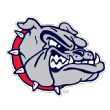
1. Gonzaga Bulldogs
Previous: 2
Gonzaga moves to the top spot after a few more weeks of comparing rosters, as the Bulldogs are likely to have the best combination of talent, balance, versatility and depth in college basketball next season. Coach Mark Few does have to wait for NBA draft decisions from Joel Ayayi, Corey Kispert and Filip Petrusev, but the rumors of star freshman Jalen Suggs going overseas or playing in the G League have quieted down. Petrusev earned WCC Player of the Year honors, Kispert was a first-team all-conference selection and Ayayi brings a little bit of everything. Suggs was a top-five recruit. Assuming those four are in the fold next season -- and they all should be -- Gonzaga will enter the 2020-21 season at No. 1. There are very few potential issues in terms of personnel. The additions of Suggs, fellow freshman Dominick Harris and Southern Illinois graduate transfer Aaron Cook give Few plenty of ballhandling options in the backcourt, while a return to health from Anton Watson and a potential breakout season from Drew Timme bolster the frontcourt.
Projected starting lineup:
Jalen Suggs (No. 5 in ESPN 100)
Joel Ayayi (10.6 PPG, 6.3 RPG)
Corey Kispert (13.9 PPG)
Drew Timme (9.8 PPG, 5.4 RPG)
Filip Petrusev (17.5 PPG, 7.9 RPG)
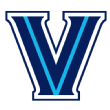
2. Villanova Wildcats
Previous: 1
Villanova drops from the No. 1 spot as it becomes clearer that Saddiq Bey is unlikely to be in a Wildcats uniform next season. Although Jay Wright has plenty of options on his roster to replace Bey in the lineup, the breakout sophomore was a handful for opponents to defend, given his ability to score around the rim and from the perimeter. With Bey gone, expect Wright to go with a smaller lineup -- not an entirely unusual situation for Villanova. Collin Gillespie, Justin Moore and Jermaine Samuels are all back on the perimeter, while rising sophomore Jeremiah Robinson-Earl should be poised for a breakout campaign next season. He was a near double-double player as a freshman, and his work ethic and productivity dating back to high school bode well for a big step forward. One key will be Tulane transfer Caleb Daniels, who sat out last season after leaving the Green Wave. A bigger guard, Daniels is a scorer -- but is also a very capable rebounder and adept playmaker. The X factor, however, should be former five-star guard Bryan Antoine. He was a big-time bucket-getter in high school, but a shoulder injury essentially eliminated his freshman campaign.
Projected starting lineup:
Collin Gillespie (15.1 PPG, 4.5 APG)
Justin Moore (11.3 PPG)
Caleb Daniels (16.9 PPG at Tulane)
Jermaine Samuels (10.7 PPG, 5.5 RPG)
Jeremiah Robinson-Earl (10.5 PPG, 9.4 RPG)
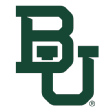
3. Baylor Bears
Previous: 3
Scott Drew had the best perimeter group in the country last season, and if things go right the rest of the spring, he should have it once again. Jared Butler and MaCio Teague both entered the NBA draft, but both should return to Waco for a real run at the Final Four. Butler is perhaps the more likely of the two to keep his name in the draft, but Teague will be 23 in June, so neither is a sure thing. That said, those two combined with Davion Mitchell bring everything to the table: playmaking, perimeter shooting, ability to score off the bounce, excellent on-ball defense. And now Drew has even more perimeter depth, with the additions of ESPN 100 point guard L.J. Cryer and High Point transfer Adam Flagler, who won Big South Freshman of the Year honors in 2018-19. Baylor's ceiling will be determined by its interior play, however. Freddie Gillespie was a surprising bright spot last season, but he's gone. Drew will have to hope Tristan Clark returns to his pre-injury form from 2018-19 or he'll have to turn to a group of newcomers.
Projected starting lineup:
Jared Butler (16.0 PPG, 3.1 APG)
Davion Mitchell (9.9 PPG, 3.8 APG)
MaCio Teague (13.9 PPG, 4.6 RPG)
Mark Vital (6.1 PPG, 6.3 RPG)
Tristan Clark (4.0 PPG, 2.4 RPG)
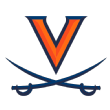
4. Virginia Cavaliers
Previous: 4
Virginia starts the second tier of teams in my preseason rankings, as I think there's a drop-off after the top three. The Cavaliers were one of the best teams in the country over the past six or seven weeks of the season, losing just one game after Jan. 20 and finishing one game back of first place in the ACC standings. We can expect Tony Bennett's team to be elite defensively once again, especially with Kihei Clark at the point of attack and Jay Huff anchoring things around the rim. But Virginia should have more offensive pop this season, too. Sam Hauser has a case to be first-team All-ACC in the preseason after averaging 14.9 points and 7.2 rebounds at Marquette in 2018-19, and ESPN 100 freshman Jabri Abdur-Rahim was one of the best pure scorers at the high school level over the past season. Last season was an abnormally down season offensively for Virginia (despite the common misinformed tropes about Bennett's offenses), which ranked No. 234 in adjusted offensive efficiency after finishing No. 2 in 2019 and in the top 50 each of the previous six seasons. Improvement at that end of the floor should have the Cavaliers at the top of the ACC standings.
Projected starting lineup:
Kihei Clark (10.8 PPG, 5.9 APG)
Casey Morsell (4.0 PPG)
Tomas Woldetensae (6.6 PPG)
Sam Hauser (14.9 PPG, 7.2 RPG at Marquette)
Jay Huff (8.5 PPG, 6.2 RPG)

5. Iowa Hawkeyes
Previous: 5
This probably seems a bit lofty for an Iowa team that finished tied for fifth in the Big Ten, went 5-6 to end the regular season and doesn't bring any elite-level newcomers to bolster the rotation. But the Hawkeyes will likely have the nation's best player returning in Luka Garza as well as last season's other four starters. Fran McCaffery also gets back Jordan Bohannon, who played just 10 games last season before shutting things down with a hip injury. Bohannon started all 68 games as a sophomore and junior, establishing himself as one of the best shooters and distributors in the Big Ten. With him back in the fold, Iowa's elite offense becomes even more dangerous. To reach their full potential, though, the Hawkeyes need to tighten things up defensively. They were 12th among 14 Big Ten teams in defensive efficiency last season, allowing at least one point per possession in 10 of their final 14 games. In fact, Iowa hasn't finished higher than 10th in the league at that end of the floor since 2016 -- that needs to change.
Projected starting lineup:
Jordan Bohannon (8.8 PPG, 3.3 APG)
CJ Fredrick (10.2 PPG)
Connor McCaffery (6.2 PPG, 4.0 APG)
Joe Wieskamp (14.0 PPG, 6.1 RPG)
Luka Garza (23.9 PPG, 9.8 RPG)
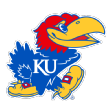
6. Kansas Jayhawks
Previous: 6
Kansas is a difficult team to project heading into next season. The Jayhawks lose their two best players from a team that was the favorite to win the national championship, and Bill Self doesn't have ready-made replacements for Devon Dotson and Udoka Azubuike. Marcus Garrett will get first crack at the point guard position, and while he took major strides forward in his offensive game last season, he's not as dangerous as Dotson off the bounce. David McCormack will step in for Azubuike, but Azubuike might have been the most physically dominant player in college basketball. Dotson and Azubuike were also excellent defensively, teaming up with Garrett (arguably the best defender in America). Self does bring in some scorers, though. Bryce Thompson was a five-star prospect and is someone who will command shots from day one, and Tyon Grant-Foster was one of the best junior college transfers in the country. In terms of returnees, Ochai Agbaji was a double-figure scorer and Christian Braun shot 45.6% from 3. Jalen Wilson, a former ESPN 100 prospect who redshirted last season, is another name to know.
Projected starting lineup:
Marcus Garrett (9.2 PPG, 4.6 APG)
Bryce Thompson (No. 26 in ESPN 100)
Ochai Agbaji (10.0 PPG)
Tyon Grant-Foster (juco transfer)
David McCormack (6.9 PPG, 4.1 RPG)
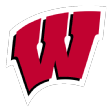
7. Wisconsin Badgers
Previous: 9
The Badgers keep sliding up a few notches in my rankings with every new edition. Not because they're adding players or getting positive personnel news but because a team that shared the Big Ten regular-season title and brings back all five players who started the final game of the season is hard to ignore. What changed over the final month, when Wisconsin won its final eight games? The Badgers became an elite offensive unit, despite losing double-figure scorer Kobe King in late January, and it was mostly thanks to two things: perimeter shooting and Micah Potter. Wisconsin shot 41% from 3-point range over that span, ranking No. 11 nationally, and Potter was dominant at times late in the season. He had 18 points and nine rebounds against Rutgers, 18 and seven against Michigan, and 14 and 11 in the finale against Indiana. He and Nate Reuvers form a really difficult one-two frontcourt punch for opponents, as 6-foot-10 Potter shot 45.1% from 3 and 6-11 Reuvers made 30 3s at a 33.7% clip.
Projected starting lineup:
D'Mitrik Trice (9.8 PPG, 4.2 APG)
Brad Davison (9.9 PPG, 4.3 RPG)
Aleem Ford (8.6 PPG, 4.4 RPG)
Nate Reuvers (13.1 PPG, 4.5 RPG)
Micah Potter (10.1 PPG, 6.2 RPG)

8. Duke Blue Devils
Previous: 7
Duke was hit hard by the NBA draft, with Tre Jones, Vernon Carey Jr. and Cassius Stanley all departing Durham. Jones and Carey had been expected to leave since before the season, and high-flying Stanley used his highlight-reel freshman season to generate positive pro buzz. Fortunately for Mike Krzyzewski, he has a loaded freshman class coming to provide reinforcements. The headliner of the group is five-star Jalen Johnson, who could emerge as the team's go-to guy right off the bat. Five-star point guard Jeremy Roach should start immediately, and five-star D.J. Steward could push for a big role early. The Blue Devils also need big steps forward from rising sophomores Wendell Moore and Matthew Hurt, both of whom came into college with some hype but didn't put it together consistently. Another key will be down low. ESPN 100 center Mark Williams could be thrust into the starting lineup immediately, but Duke also landed Columbia graduate transfer Patrick Tape for some experience and depth inside.
Projected starting lineup:
Jeremy Roach (No. 18 in ESPN 100)
Wendell Moore (7.4 PPG)
Jalen Johnson (No. 12 in ESPN 100)
Matthew Hurt (9.7 PPG)
Mark Williams (No. 29 in ESPN 100)
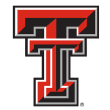
9. Texas Tech Red Raiders
Previous: 11
Texas Tech really struggled down the stretch last season, but the Red Raiders have a major influx of talent coming to Lubbock -- which should help offset the loss of Jahmi'us Ramsey and two seniors up front. Nimari Burnett leads a top-15 recruiting class for Chris Beard; the five-star guard was Texas Tech's highest-ranked recruit in program history. Top-50 wing Micah Peavy stayed in-state for school, and Chibuzo Agbo fits the Texas Tech ethos. Then there are two transfers: talented former UNLV forward Joel Ntambwe and potential VCU grad transfer Marcus Santos-Silva, one of the top transfers this spring. Santos-Silva should start immediately. Starters Davide Moretti, Kyler Edwards and Terrance Shannon are all back, too. The question for Tech could be how quickly things come together on the defensive end. Beard-coached teams hang their hat on that end of the floor, but with all the new faces, it could be a work in progress early on. This season, however, there are more scoring weapons to overcome a slow start defensively.
Projected starting lineup:
Nimari Burnett (No. 21 in ESPN 100)
Davide Moretti (13.0 PPG)
Kyler Edwards (11.4 PPG, 3.1 APG)
Terrance Shannon (9.8 PPG, 4.1 RPG)
Marcus Santos-Silva (12.8 PPG, 8.9 RPG at VCU)

10. Michigan State Spartans
Previous: 8
Michigan State has some of the biggest personnel questions of any team in the top 25, with Xavier Tillman seemingly 50/50 on keeping his name in the NBA draft. If Tillman does leave, Tom Izzo will have to replace two of the more productive players in the country in him and star guard Cassius Winston. Then there's the status of Josh Langford, who missed the past season and a half to injury but said earlier this spring that he was weighing a return to East Lansing for one final season. Those two decisions will go a long way in determining Michigan State's ceiling this campaign. Izzo isn't short on options, though. Rocket Watts, Aaron Henry, Gabe Brown and Malik Hall are all back from last season, while Marquette transfer Joey Hauser enters the fold. Two ESPN 100 prospects, A.J. Hoggard and Mady Sissoko, are also coming to town. Hoggard will push for minutes at point guard, and Sissoko is insurance in case Tillman leaves. The Spartans are also still in the mix for Canadian point guard Karim Mane, who is testing the NBA draft waters. There's still lots to figure out in East Lansing in the coming weeks and months.
Projected starting lineup:
Rocket Watts (9.0 PPG)
Gabe Brown (6.8 PPG, 3.6 RPG)
Aaron Henry (10.0 PPG, 4.6 RPG)
Joey Hauser (9.7 PPG, 5.3 RPG at Marquette)
Xavier Tillman (13.7 PPG, 10.3 RPG

11. Tennessee Volunteers
Previous: 13
I get more optimistic about Tennessee's roster every time we update the rankings. The Volunteers struggled last season and would have missed the NCAA tournament, but I think a big bounce-back campaign is in store for Rick Barnes' team. Here's how deep Tennessee's talent level is this season: The Volunteers might not have to start both incoming five-star guards, and they could have someone who averaged 15.7 points and 11.6 rebounds last season coming off the bench. Four starters are back from a season ago, and five-star guards Jaden Springer and Keon Johnson will push for starting roles immediately. Sacred Heart graduate transfer E.J. Anosike provides depth and experience on the interior. Among the returnees, Santiago Vescovi might be the key. The Uruguayan point guard became eligible in January and gave Barnes a lift in the starting lineup immediately -- but Vescovi needs to become more efficient and cut down on his turnovers if Tennessee is to reach its potential. He had five or more turnovers in seven of his 19 games played and a negative assist-to-turnover ratio in eight of 19.
Projected starting lineup:
Santiago Vescovi (10.7 PPG, 3.7 APG)
Jaden Springer (No. 16 in ESPN 100)
Josiah-Jordan James (7.4 PPG, 5.5 RPG)
Yves Pons (10.8 PPG, 5.4 RPG)
John Fulkerson (13.7 PPG, 5.9 RPG)
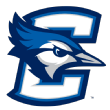
12. Creighton Bluejays
Previous: 12
Creighton was ranked No. 2 in the first iteration of these rankings, back when it looked as if the band was getting back together for one more go-round in Omaha. Then Ty-Shon Alexander left for the NBA draft and appeared content to keep his name in the draft, while Davion Mintz graduated and transferred to Kentucky. Greg McDermott still has four starters back from a year ago, led by point guard Marcus Zegarowski, who might not have been healthy enough for the NCAA tournament had it happened, and Mitch Ballock. A bigger role is in store for sixth man extraordinaire Denzel Mahoney, who scored in double figures in 14 of 20 games after getting eligible. The big questions next season will come in the frontcourt. The Bluejays ranked No. 9 in the Big East last season in offensive and defensive rebounding; it's hard to make a Final Four struggling that much on the glass. Damien Jefferson and Christian Bishop are both back, and the return of Jacob Epperson from injury and the arrival of four-star center Ryan Kalkbrenner should help massively.
Projected starting lineup:
Marcus Zegarowski (16.1 PPG, 5.0 APG)
Denzel Mahoney (12.0 PPG)
Mitch Ballock (11.9 PPG, 5.3 RPG)
Damien Jefferson (9.4 PPG, 5.5 RPG)
Christian Bishop (8.6 PPG, 5.3 RPG)
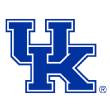
13. Kentucky Wildcats
Previous: 15
You see Isaiah Jackson in the projected starting lineup? That's more of a placeholder for now, as the expectation (or hope) is that Wake Forest transfer Olivier Sarr will receive a waiver to play next season and slot into the center position immediately. If that happens, and it's unclear when we might find out, Kentucky will likely shoot up the rankings into the top five. As it stands, John Calipari has tons of perimeter talent, but lacks experience and ready-made interior options. Sarr would solve both of those issues. Keion Brooks is the only returning rotation player from a season ago, and he will be leaned on regardless of whether Sarr gets a waiver. The perimeter is loaded with intriguing pieces. Devin Askew is a competitive, tough-minded point guard, and top-10 prospects B.J. Boston and Terrence Clarke will provide scoring and playmaking from the wings. Davion Mintz is a veteran point guard who transferred from Creighton this offseason and has plenty of experience. If Sarr doesn't receive a waiver, Calipari will be forced to go small on occasion -- although Jackson is an elite shot-blocker.
Projected starting lineup:
Devin Askew (No. 24 in ESPN 100)
B.J. Boston (No. 6 in ESPN 100)
Terrence Clarke (No. 9 in ESPN 100)
Keion Brooks (4.5 PPG, 3.2 RPG)
Isaiah Jackson (No. 31 in ESPN 100)
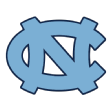
14. North Carolina Tar Heels
Previous: 16
Carolina will be one of the more interesting teams to watch in preseason and early-November games next season, simply to see how Roy Williams handles his loaded frontcourt group. The Tar Heels bring back former five-star recruit Armando Bacot and potential ACC Preseason Player of the Year Garrison Brooks, while also welcoming five-star interior recruits Day'Ron Sharpe and Walker Kessler. All four could conceivably start next season, but Williams will have decisions to make. Those four plus five-star point guard Caleb Love would form the Tar Heels' most talented five-man group, but that's an impossible lineup. So the key next season will be the maturation of Williams' wings (and health, a huge issue for Carolina last season). Anthony Harris should be healthy, Leaky Black is back and Williams brings in ESPN 100 prospects Donovan "Puff" Johnson and R.J. Davis. If one or two of those players can emerge as consistent wing scorers, it will be a major bounce-back season in Chapel Hill.
Projected starting lineup:
Caleb Love (No. 17 in ESPN 100)
Anthony Harris (6.8 PPG)
Leaky Black (6.5 PPG, 5.0 RPG)
Armando Bacot (9.6 PPG, 8.3 RPG)
Garrison Brooks (16.8 PPG, 8.5 RPG)
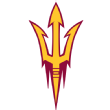
15. Arizona State Sun Devils
Previous: 10
We moved Arizona State all the way up to No. 10 last time around after the addition of five-star scoring guard Josh Christopher, but now the Sun Devils tumble a few spots with the departure of big man Romello White. White was a consistent double-double threat last season, but he graduated and decided to transfer to Ole Miss. Bobby Hurley now has some serious frontcourt questions to answer if Arizona State is going to be the Pac-12 favorite. The perimeter is loaded. Remy Martin was one of the best playmakers in the league last season, and Alonzo Verge brought scoring punch. Both players are testing the NBA draft waters. Christopher was maybe the best pure scorer in the 2020 class and will command shots early. The Sun Devils could also hope for waivers for transfers Holland Woods (Portland State) and Luther Muhammad (Ohio State), two more perimeter pieces. But back to the frontcourt. Without White, Hurley will hope Jalen Graham can take a step forward down low -- or he could go small with some combination of Kimani Lawrence, Taeshon Cherry and ESPN 100 forward Marcus Bagley at the two interior positions.
Projected starting lineup:
Remy Martin (19.1 PPG, 4.1 APG)
Alonzo Verge (14.6 PPG)
Josh Christopher (No. 10 in ESPN 100)
Kimani Lawrence (4.9 PPG, 2.6 RPG)
Jalen Graham (3.2 PPG, 2.8 RPG)

16. Oregon Ducks
Previous: 18
I'm slightly higher on Oregon than the consensus, but that's because Dana Altman always seems to figure things out, rosterwise. He has become highly adept at mixing and matching freshmen, transfers and returnees, throwing out unorthodox lineups until something works. Oh, and there's plenty of talent here. With Payton Pritchard gone, someone will have to become the leader of this team, on the court and in the locker room. On the court, Altman has a number of perimeter options. Will Richardson could be poised for a huge season, while Chris Duarte also returns. ESPN 100 point guard Jalen Terry will fight for a spot immediately, as will UNLV graduate transfer Amauri Hardy. Up front, Altman has to hope one or two of his four rising sophomores -- C.J. Walker, N'Faly Dante, Addison Patterson, Chandler Lawson -- will make strides. If not, he will rely on incoming transfers Eugene Omoruyi (Rutgers) and Eric Williams (Duquesne), both of whom sat out last season. Both players were highly productive at their previous schools and have experience. Oregon also seems to always have an ace up its sleeve in the summer, so we'll see whether Altman brings in anyone else.
Projected starting lineup:
Amauri Hardy (14.5 PPG, 3.3 APG at UNLV)
Will Richardson (11.0 PPG, 3.7 RPG)
Chris Duarte (12.9 PPG, 5.6 RPG)
Eugene Omoruyi (13.8 PPG, 7.2 RPG at Rutgers)
N'Faly Dante (5.8 PPG, 2.8 RPG)

17. West Virginia Mountaineers
Previous: 23
I admittedly have something of a blind spot for West Virginia in preseason rankings most years, simply because the Mountaineers rarely overwhelm teams with on-paper talent. But the track record speaks for itself. Over the past six seasons, Bob Huggins has led the Mountaineers to four 25-win seasons and three Sweet 16 appearances -- with the lone down season stemming from a clear rebuild. Next season is certainly not a rebuild, as West Virginia brings back four starters and has sixth man Miles McBride ready to step into a bigger role. McBride had an eight-game stretch in the middle of the season during which he hit double figures in every game, then went cold for most of the next six weeks before finishing with three straight double-figure-scoring games. The decisions of Oscar Tshiebwe and Derek Culver to return to Morgantown instead of testing the NBA draft waters were huge for Huggins. Those two form one of the best -- and toughest -- interior tandems in the country. The 1-6 stretch in February soured me on West Virginia in the previous rankings, but I'm coming around on the Mountaineers.
Projected starting lineup:
Jordan McCabe (3.1 PPG)
Emmitt Matthews (6.3 PPG)
Miles McBride (9.5 PPG)
Oscar Tshiebwe (11.2 PPG, 9.3 RPG)
Derek Culver (10.4 PPG, 8.6 RPG)

18. Stanford Cardinal
Previous: 20
Would Stanford have made the NCAA tournament last season? The Cardinal likely would have been one of the final teams in or out of the field, having finished 20-12 overall and 9-9 in the Pac-12, but having lost their last three games -- including a Pac-12 tourney game to California. But it was a step forward for Jerod Haase's tenure, and another big step is expected next season. Stanford could bring back all five starters from last season, a young quintet that featured two freshmen and one sophomore in the lineup. The big reason for optimism comes in the form of top-10 recruit Ziaire Williams, the program's highest-ranked recruit in history. Williams is a versatile two-way player who immediately upgrades the starting lineup -- and is just one piece for a top-10 recruiting class. Haase will have to wait and see on the future of Tyrell Terry, however. The rising sophomore had a terrific freshman campaign in Palo Alto, but entered his name into the NBA draft and has not decided whether to return to school. If he returns, it's all systems go for the Cardinal.
Projected starting lineup:
Tyrell Terry (14.6 PPG, 3.2 APG)
Daejon Davis (8.8 PPG, 3.7 RPG)
Ziaire Williams (No. 7 in ESPN 100)
Spencer Jones (8.8 PPG, 3.2 RPG)
Oscar da Silva (15.7 PPG, 6.4 RPG)
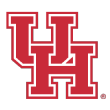
19. Houston Cougars
Previous: 14
Houston was steadily rising and pushing for a preseason top-10 spot, as teams around the Cougars in the rankings steadily lost players to the NBA or transfer. The Cougars were expected to bring back their top six scorers from a team that finished in the top 15 at KenPom.com and in the BPI. But Kelvin Sampson's team took a big hit earlier this week when Nate Hinton announced he would keep his name in the NBA draft rather than return to Houston. Hinton is not projected to be picked in most mock drafts, so the decision comes as a bit of a surprise. Houston still has options, but Hinton brought a different dimension to the Cougars and was poised for a breakout campaign. Sampson will now undoubtedly go with a small lineup, led by DeJon Jarreau (assuming he returns), Quentin Grimes, Caleb Mills and Marcus Sasser -- with ESPN 100 recruit Tramon Mark and Idaho transfer Cameron Tyson waiting in the wings. Can they get enough interior production? Fabian White is a mainstay in the lineup, but Sampson will hope Brison Gresham or Kiyron Powell can provide some quality minutes.
Projected starting lineup:
DeJon Jarreau (9.0 PPG, 3.7 APG)
Marcus Sasser (8.1 PPG)
Quentin Grimes (12.1 PPG)
Caleb Mills (13.2 PPG)
Fabian White (9.3 PPG, 5.5 RPG)

20. Texas Longhorns
Previous: Next in line
Texas had the most noteworthy addition since the previous edition of the rankings, with top-10 recruit Greg Brown committing to the Longhorns. Despite every single point from last season's team returning to Austin, Brown will immediately slot into the starting lineup and provide a completely different dimension than anyone else on the roster. He's a talented athlete who excels in the open floor and has continued to expand his game as his high school career progressed. How Shaka Smart doles out minutes next season will be interesting to watch. Matt Coleman and Courtney Ramey are likely solidly in the starting lineup, while Andrew Jones and Jase Febres will battle for another perimeter position. Smart also has a number of options down low, as Jericho Sims was the most consistent interior player last season, but it was Royce Hamm and Kai Jones -- the most talented player of the group -- who sparked a late-season five-game winning streak. Next season is a huge one for Smart, who hasn't been to the NCAA tournament since 2018.
Projected starting lineup:
Matt Coleman (12.7 PPG, 3.4 APG)
Courtney Ramey (10.9 PPG)
Andrew Jones (11.5 PPG)
Greg Brown (No. 8 in ESPN 100)
Jericho Sims (9.7 PPG, 8.2 RPG)
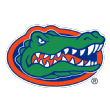
21. Florida Gators
Previous: 19
Florida's ranking likely comes down to whether Andrew Nembhard decides to keep his name in the NBA draft or returns to Gainesville. One of the more talented point guards in the SEC, Nembhard hasn't quite put it together for an entire season through two college seasons -- but the Gators need him back to reach their full potential. If Nembhard leaves, former five-star recruit Tre Mann will take the reins ... if he withdraws from the NBA draft. But Mike White did receive some positive NBA-related news, when athletic wing Scottie Lewis decided to stay in school for his sophomore year rather than test the waters. Lewis, Noah Locke and Keyontae Johnson -- one of the most underrated players in college basketball -- form a solid core for the Gators. Transfers Tyree Appleby and Anthony Duruji, as well as four-star freshmen Samson Ruzhentsev and Niels Lane, are more weapons for White. How the Gators replace Kerry Blackshear is the second big question for Florida, but former ESPN 100 recruit Omar Payne could be the answer.
Projected starting lineup:
Andrew Nembhard (11.2 PPG, 5.6 APG)
Noah Locke (10.6 PPG)
Scottie Lewis (8.5 PPG, 3.6 RPG)
Keyontae Johnson (14.0 PPG, 7.1 RPG)
Omar Payne (3.8 PPG, 3.6 RPG)
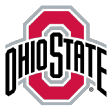
22. Ohio State Buckeyes
Previous: 17
I might have been overly aggressive with the Buckeyes in the first edition of the rankings, when they were No. 13. Since then, though, they lost Luther Muhammad to Arizona State, lost D.J. Carton to Marquette and are expecting Kaleb Wesson to keep his name in the NBA draft. That's a lot of talent, minutes and production heading out the door earlier than scheduled. So where does Chris Holtmann turn? He still brings back the starting backcourt of CJ Walker and Duane Washington, while transfers Seth Towns (Harvard) and Justice Sueing (California) should provide a lot of offense from the wing. Size and consistency up front will be the big key. Kyle Young showed flashes last season, especially on the offensive glass, and rising sophomore E.J. Liddell could be a future matchup problem. One name to watch is incoming four-star freshman Zed Key, an underrated recruit who should be ready for an immediate impact. Holtmann has won at least 20 games in each of his past seven seasons as a head coach; another one is likely on the way.
Projected starting lineup:
CJ Walker (8.7 PPG, 3.5 APG)
Duane Washington (11.5 PPG)
Seth Towns (16.0 PPG, 6.7 RPG at Harvard)
E.J. Liddell (6.7 PPG, 3.8 RPG)
Kyle Young (7.5 PPG, 5.8 RPG)

23. Indiana Hoosiers
Previous: Unranked
We've been slow to come around on the Hoosiers this spring, but the decision by five-star point guard Khristian Lander to reclassify and enroll at Indiana in the fall clinched their spot in the top 25. How Lander fits into the lineup is up for debate. Archie Miller returns all five starters from last season's 20-win team, and rising junior point guard Rob Phinisee has been one of the more efficient distributors in the Big Ten the past two seasons, while Al Durham brings leadership and defense. It wouldn't be a shock to see Lander start the season on the bench, but his arrival is a clear talent upgrade in Bloomington. The rest of the lineup returns intact, led by All-Big Ten big man Trayce Jackson-Davis, who will look to build upon his productive freshman season. Justin Smith and Joey Brunk are also back. With the NCAA tournament canceled because of the pandemic, Miller has still not been to the dance since taking over at Indiana. The Hoosiers have taken strides each season under Miller, though, and it should pay off in 2020-21.
Projected starting lineup:
Rob Phinisee (7.3 PPG, 3.4 APG)
Al Durham (9.8 PPG)
Justin Smith (10.4 PPG, 5.2 RPG)
Trayce Jackson-Davis (13.5 PPG, 8.4 RPG)
Joey Brunk (6.8 PPG, 5.2 RPG)
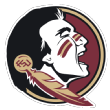
24. Florida State Seminoles
Previous: 22
The past three seasons for Leonard Hamilton and the Seminoles: ACC regular-season title; 29 wins and a Sweet 16 appearance; Elite Eight run. And Florida State was underrated in the preseason all three years. And now it probably looks as if I'm underrating the Seminoles again. Maybe that's true, but I do have some questions about their lineup and rotation. Point guard is the biggest issue. Trent Forrest has departed, and there might not be a pure point guard on the entire roster. Could versatile top-five freshman Scottie Barnes handle some of the playmaking responsibility? Also, with the early departures of Devin Vassell and Patrick Williams, Hamilton is losing real talent -- and dynamic offensive ability -- on the wings. Sardaar Calhoun is a touted junior college transfer and M.J. Walker is the top returning scorer, and they will both be counted on for big scoring outputs. The Noles have their usual assortment of talented bigs on the inside, and Balsa Koprivica could be poised for a breakout sophomore campaign.
Projected starting lineup:
M.J. Walker (10.5 PPG)
Sardaar Calhoun (juco transfer)
Scottie Barnes (No. 4 in ESPN 100)
RaiQuan Gray (6.0 PPG, 3.8 RPG)
Malik Osborne (6.0 PPG, 4.9 RPG)
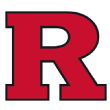
25. Rutgers Scarlet Knights
Previous: 24
The Scarlet Knights' NCAA tournament drought should have ended last season, but it won't get past the 30-year mark. Rutgers brings back four starters from last season's 20-win group, a team that showed some real mental toughness down the stretch by beating Maryland and winning at Purdue to secure what would have been a tourney bid. Geo Baker and Ron Harper lead the way among the returnees, while sixth man Jacob Young could be in store for a bigger role after scoring in double figures 13 times off the bench last season. Steve Pikiell does lose Akwasi Yeboah and Shaq Carter on the interior, but he brings in top-50 recruit Cliff Omoruyi, the program's highest-ranked recruit since 2008. That gives Pikiell some different lineup options, as he could go big with Omoruyi and Myles Johnson, or bring Omoruyi along slowly. Either way, the biggest key next season is going to be performance on the road; Rutgers was just 2-10 away from home last season.
Projected starting lineup:
Geo Baker (10.9 PPG, 3.5 APG)
Jacob Young (8.5 PPG)
Montez Mathis (7.4 PPG, 3.5 RPG)
Ron Harper (12.1 PPG, 5.8 RPG)
Myles Johnson (7.8 PPG, 7.9 RPG)
Next in line:
Arkansas Razorbacks (previous: No. 21)
Richmond Spiders (previous: No. 25)
Louisville Cardinals (previous: Next in line)
Michigan Wolverines (previous: Next in line)
UCLA Bruins (previous: Next in line)
Dropped out:
LSU Tigers (previous: Next in line)
